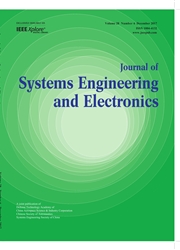

 中文摘要:
中文摘要:
The in-phase and quadrature-phase imbalance (IQI)is one of the major radio frequency impairments existing in orthogonal frequency division multiplexing (OFDM) systems with direct-conversion transceivers. During the transmission of the communication signal, the impact of IQI is coupled with channel impulse responses (CIR), which makes the traditional channel estimation schemes ineffective. A decoupled estimation scheme is proposed to separately estimate the frequency-dependent IQI and wireless channel. Firstly, the generalized channel model is built to separate the parameters of IQI and wireless channel. Then an iterative estimation scheme of frequency-dependent IQI is designed at the initial stage of communication. Finally, based on the estimation result of IQI, the least square algorithm is utilized to estimate the channel-related parameters at each time of channel variation.Compared with the joint estimation schemes of IQI and channel,the proposed decoupled estimation scheme requires much lower training overhead at each time of channel variation. Simulation results demonstrate the good estimation performance of the proposed scheme.
 英文摘要:
英文摘要:
The in-phase and quadrature-phase imbalance (IQI) is one of the major radio frequency impairments existing in orthogonal frequency division multiplexing (OFDM) systems with direct-conversion transceivers. During the transmission of the communication signal, the impact of IQI is coupled with channel impulse responses (CIR), which makes the traditional channel estimation schemes ineffective. A decoupled estimation scheme is proposed to separately estimate the frequency-dependent IQI and wireless channel. Firstly, the generalized channel model is built to separate the parameters of IQI and wireless channel. Then an iterative estimation scheme of frequency-dependent IQI is designed at the initial stage of communication. Finally, based on the estimation result of IQI, the least square algorithm is utilized to estimate the channel-related parameters at each time of channel variation. Compared with the joint estimation schemes of IQI and channel, the proposed decoupled estimation scheme requires much lower training overhead at each time of channel variation. Simulation results demonstrate the good estimation performance of the proposed scheme.
 同期刊论文项目
同期刊论文项目
 同项目期刊论文
同项目期刊论文
 期刊信息
期刊信息
